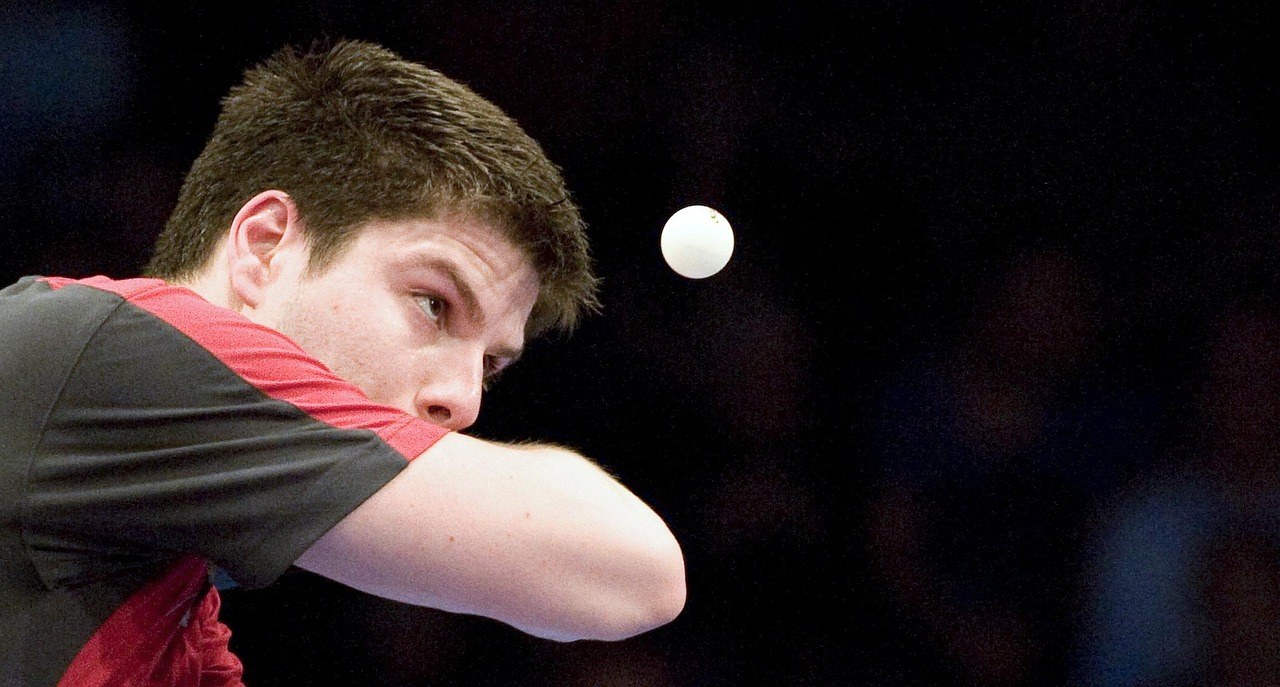Every person experiences seasons when desire feels muted – moments when the spark that once came easily suddenly needs a little coaxing. If your sex drive has faded, you are not broken; you are human. Bodies and minds ebb and flow with stress, sleep, hormones, medications, routines, and relationship dynamics. The good news is that a quieter sex drive can respond to gentle attention, clear communication, and small lifestyle shifts. What follows is a fully reimagined guide that explains why arousal can stall, how to spot the signs early, and what you can do – practically and compassionately – to nudge your sex drive back into motion and keep it humming along.
When Desire Dips – Understanding the Landscape
A lower sex drive rarely has a single villain. Often it’s a cluster of influences arriving at once: longer work hours, a new prescription, a mismatch in expectations, or even the natural cooling that follows the first rush of a relationship. Recognizing that your sex drive is responsive to context is empowering – it means you can change the context. Instead of judging yourself or your partner, treat the shift as information. With a calmer mindset you’ll be better positioned to experiment, observe, and restore your sex drive over time.
Common Reasons Your Sex Drive Goes Quiet
Pinpointing why your desire feels distant helps you choose what to adjust first. These causes are common, and more than one may apply at the same time.

- Stress crowding out pleasure. When your brain is juggling deadlines and worries, there’s little bandwidth left for fantasy or play. Chronic tension diverts attention – and with it, your sex drive.
- The afterglow of newness fading. Early-stage relationships are saturated with novelty. As comfort replaces surprise, routine can dull stimulation. That doesn’t doom passion, but it does change the ingredients your sex drive responds to.
- Food choices that sap energy. Heavy, low-nutrient meals can leave you sluggish. Over time, that foggy feeling can erode motivation and undercut your sex drive.
- Self-esteem dips. Feeling uneasy about your body can make intimacy feel exposed rather than exciting. When attention turns inward toward critique, your sex drive struggles to surface.
- New medications. Some prescriptions list diminished arousal as a side effect. If your timeline lines up – new pill, lower sex drive – have a medical conversation before making any changes.
How to Tell Your Libido Has Slowed
Awareness is a pressure-free way to begin. These signs won’t diagnose a problem on their own, but they can confirm that your sex drive needs care.
- Fewer spicy daydreams. If mental wanderings that once drifted toward intimacy now skim past it, your sex drive may be signaling that it’s on standby.
- Less interest in initiating. When “getting it on” falls down the list of appealing activities, your sex drive is likely taking a breather.
- Slower arousal. Finding it harder to rev up – even in settings that used to work – suggests your sex drive needs warmer conditions and more time.
- Reduced solo play. If masturbation becomes rare without a deliberate reason, that can mirror a general dip in sex drive.
- Softer sensations. Pleasure might feel dimmed, as if the dial turned down a notch – another clue that your sex drive is quieter than usual.
- No buzz of anticipation. Looking ahead to intimacy used to deliver butterflies; if that fizz has flattened, your sex drive likely needs new cues.
- Mental wandering during sex. Grocery lists invading the bedroom is a classic hint that your sex drive isn’t fully engaged.
- Shaky sexual confidence. Doubting your sexual self can become a loop that further mutes your sex drive unless interrupted by warmth and reassurance.
- Physical signals. Dryness, difficulties with erection, or discomfort can both reflect and contribute to a lower sex drive.
- Feeling like roommates. Emotional distance narrows the space where desire usually blooms, which your sex drive picks up immediately.
Practical Moves to Revive and Sustain Desire
Think of these strategies as a menu – choose a few, test them in your real life, and keep the ones that nurture your sex drive. You don’t need to overhaul everything at once; consistency beats intensity.
- Identify the friction point. Ask yourself what changed. Is it schedule, mood, health, or dynamics between you and your partner? Clear labeling reduces overwhelm and points your sex drive toward solutions.
- Repair what’s frayed. If a comment stung or a conflict lingered, address it directly. Emotional safety is rocket fuel for a responsive sex drive.
- Move your body more often. Regular activity boosts energy and body trust. Feeling strong and alive has a quiet way of coaxing your sex drive back to the surface.
- Refresh your plate. Lighter, nutrient-dense meals help you feel vibrant rather than weighed down, and that lifted mood can support a steadier sex drive.
- Say yes to intimacy – even gently. Sometimes desire follows action. Soft cuddling, lingering kisses, or a short session can remind your sex drive what pleasure feels like without pressure.
- Try new angles and rhythms. A single rotation of positions, locations, or pacing can make your sex drive perk up – novelty tells your brain to pay attention.
- Invite healthy thrills. Non-sexual adventures – from rollercoasters to scenic hikes – can energize your system. That extra spark often spills over and nudges your sex drive.
- Enjoy a modest pour. A small glass of red wine can enhance relaxation for some people. Keep it light so your sex drive benefits from loosened nerves, not dulled senses.
- Increase affectionate touch. Holding hands, a palm on the thigh, or a slow back rub builds connection. Warmth like this primes your sex drive without demanding a finale.
- Embrace natural chemistry. Time together after a workout, shared showers, or skin-to-skin lounging can amplify attraction – subtle cues your sex drive recognizes.
- Play with sensual foods. Chocolate, figs, bananas, avocados, almonds, oysters, and strawberries can bring a playful, sensory vibe to a date night. The ritual itself can awaken your sex drive.
- Use visual inspiration thoughtfully. Adult content – chosen with care and consent – may jump-start arousal. Treat it as a tool you can put down anytime your sex drive prefers another path.
- Lower the stress temperature. Simple practices like reading, stretching, or breathwork calm the mind. With fewer mental alarms, your sex drive has room to breathe.
- Talk about what turns you on. Casual, flirty conversations during the day build anticipation. Your brain is your largest erogenous zone – feed it and your sex drive will respond.
- Protect your sleep window. Rest restores mood and hormones. More sleep today often equals a more cooperative sex drive tomorrow.
- Explore meditation or yoga. Gentle movement and mindful attention reconnect you to bodily sensations – a direct invitation to your sex drive to reawaken.
- Dress for your own gaze. Wear something that makes you feel magnetic under your clothes. Confidence is contagious, and your sex drive catches it.
- Tidy for desire. A serene bedroom – fresh sheets, less clutter – reduces distraction and makes it easier for your sex drive to lean in.
- Introduce new toys or tools. Thoughtfully chosen accessories can add variety and control, giving your sex drive new routes to enjoyment.
- Stretch the prelude. Luxuriate in kissing, touching, and teasing. For many, extended foreplay is the bridge that lets sex drive cross comfortably from neutral to eager.
- Consult a clinician when needed. If pain, dryness, erectile changes, mood shifts, or medication effects persist, a professional can help you protect health and support your sex drive.
Making the Most of the Middle – Not Just the Finish
One subtle shift can have an outsized impact: focus more on the journey and less on a specific outcome. When pressure to perform dissolves, curiosity flourishes. Many people notice that their sex drive rises when they trade checklists for play. Explore a slower pace, experiment with touch maps, and keep checking in about what feels good right now. This mindset re-trains your sex drive to associate intimacy with relief and delight rather than duty.

Communication That Fuels Connection
Open, kind language builds the safety your sex drive prefers. Try simple frames like, “I miss feeling close and want to find our rhythm again,” or “Can we try a slower warm-up tonight?” Notice how specific requests – more pressure, less pressure, different angle – transform the experience. When partners feel heard, they bring more of themselves to the moment, and your sex drive reads that generosity as an invitation.
Rituals That Keep Desire in Motion
Desire thrives on regular nourishment. Create one or two repeatable rituals and let them do the heavy lifting. Maybe it’s a Sunday morning cuddle hour, a midweek walk where you trade fantasies, or a no-phones evening bath together. Rituals replace decision fatigue with rhythm – and rhythm gives your sex drive a predictable lane to run in.
Body Image, Kindness, and Play
Your body is not an obstacle to overcome; it’s the place where pleasure happens. Speak to it with the same warmth you would offer a partner. Treat yourself to fabrics that feel good, mirrors that flatter, and movement that celebrates capacity rather than chasing perfection. When self-talk softens, your sex drive encounters less resistance on its way to the surface.

Creating an Environment Where Arousal Is Welcome
Small environmental cues carry big weight. Lower the lights, queue music that makes you sway, and make the bed a place where rest and romance both belong. Keep practical items handy – lubricant, a cozy blanket, a glass of water – so you never have to leave the moment. Practicality is surprisingly sexy; it lets your sex drive stay present instead of getting derailed by logistics.
What to Expect as You Experiment
Progress is seldom linear. A week of wins may be followed by a flat day – that doesn’t mean your sex drive is gone again. It means you’re human and adapting. Keep notes if it helps: what time of day you felt most open, which touches worked, how much rest you had, whether stress was high. Patterns will appear, and your sex drive will benefit from the data you collect about your own life.
Partner Dynamics – Easing In Together
Invite your partner into the process with clarity and gentleness. Share what you’re trying, ask what they’re curious about, and decide on a couple of experiments to explore together. When both of you feel like teammates – not adversaries – motivation rises and your sex drive tends to follow. Remember to praise what works; positive feedback trains both memory and desire.
When Compassion Is the Shortcut
It’s easy to scold yourself for not being “in the mood.” Instead, pause and offer kindness. Compassion lowers inner tension – and tension is often what keeps your sex drive stuck in neutral. Consider a simple mantra: “Nothing is wrong with me; I’m learning what I need.” From that stance, each small success builds momentum.
Choose What Fits and Keep What Works
There is no single, universal fix. Your life stage, health, responsibilities, and relationship context are uniquely yours, and your sex drive reflects that uniqueness. Select a few ideas that feel doable this week – maybe a thirty-minute walk, a longer kiss at bedtime, an uncluttered nightstand, and a playful message in the afternoon – and see how your body and brain respond. Over time, you’ll assemble a personal toolkit that helps your sex drive wake up, stretch, and stay delightfully engaged.